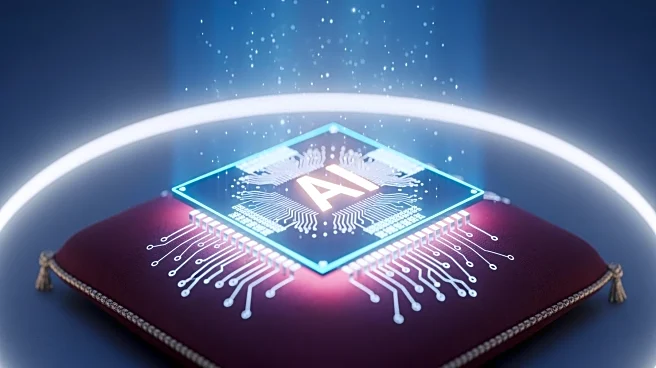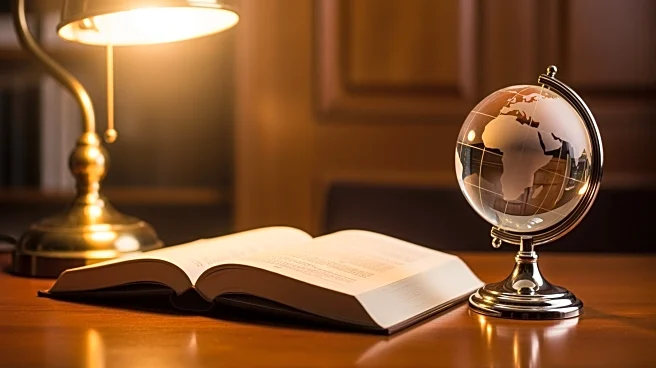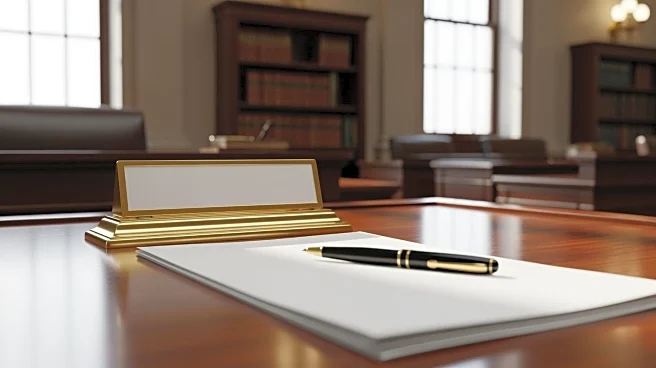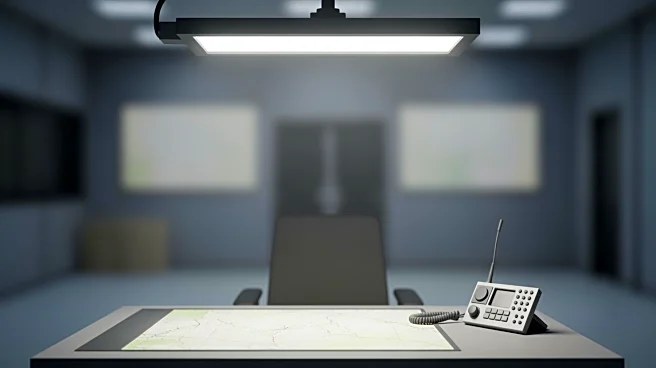What's Happening?
Pope Leo XIV, the first-ever American pope, has called upon leaders in the AI industry to integrate moral discernment into their technological innovations. In a recent message to participants of the Builders AI Forum 2025, Pope Leo emphasized the ethical
and spiritual responsibilities that come with AI development. He urged developers to create systems that reflect justice, solidarity, and a reverence for life, aligning with the Catholic Church's mission. This call comes as major tech companies like Google, Microsoft, and Meta, along with startups such as Anthropic and OpenAI, are heavily investing in AI technologies like Claude and ChatGPT. The pope's remarks highlight concerns that the race to innovate may overlook safety protocols, potentially disrupting jobs, the economy, and humanity.
Why It's Important?
Pope Leo XIV's appeal underscores the growing ethical concerns surrounding AI development. As AI technologies become increasingly integrated into various sectors, the potential for societal disruption looms large. The pope's emphasis on moral discernment is a call to balance innovation with ethical considerations, ensuring that AI serves humanity positively. This perspective is crucial as AI continues to transform industries, impacting employment and economic structures. By advocating for ethical AI, Pope Leo XIV aims to guide developers towards creating technologies that enhance human dignity and justice, rather than compromising them.
What's Next?
The pope's message may influence AI developers to reconsider their approach to innovation, potentially leading to increased collaboration with ethical and religious institutions. As AI technologies evolve, stakeholders in the industry might face pressure to adopt ethical guidelines that align with broader societal values. This could result in new partnerships between tech companies and organizations focused on ethical standards, fostering a more responsible approach to AI development.
Beyond the Headlines
Pope Leo XIV's involvement in AI discussions highlights the intersection of technology and spirituality, suggesting a future where religious institutions play a more active role in guiding technological advancements. This development could lead to broader conversations about the ethical implications of AI, encouraging a more holistic view of technology's role in society. The pope's call for moral discernment may also inspire other global leaders to advocate for ethical considerations in technological innovation.














